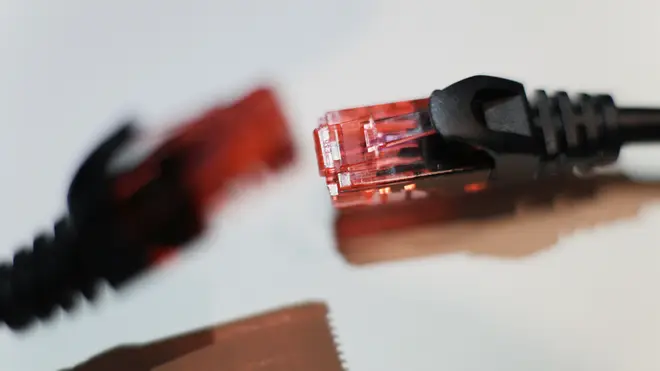
Henry Riley 7pm - 10pm
16 February 2022, 14:14

Representatives from the company were asked why users on the Project Stratum network are paying more than those in towns and cities.
An internet provider has defended charging customers more on a new rural broadband network than it users in towns and cities.
An Assembly committee heard Fibrus offers the same entry price to all customers in Northern Ireland, but those using the Project Stratum network are unable to avail of the discounts offered to bill payers in urban locations.
While Fibrus Networks is fulfilling the infrastructure contract to build the £200 million state-subsidised Project Stratum, which is set to connect 85,000 rural homes and businesses to full fibre broadband, the company’s commercial arm is also selling internet packages to newly connected customers on the network.
Away from Project Stratum, Fibrus also offers internet services on other networks across Northern Ireland.

Appearing before the Department for the Economy scrutiny committee on Wednesday, representatives from the company were asked why some customers on the Project Stratum network are paying higher bills than Fibrus customers elsewhere in the region.
Conal Henry, the co-founder and chair of Fibrus, explained that discounts are offered to customers on more well-established networks because of competition with other service providers and the need to incentivise people to sign up.
Mr Henry said while any service provider is able to operate on the Project Stratum network, competitors have not yet taken that step.
He said in the absence of that competitive dynamic, Fibrus has to be mindful that reducing prices could undermine the overriding aim of the subsidised project – to extend fibre broadband coverage across Northern Ireland.
“Stratum is a gap funded model – the wider the gap between economic payback and the cost to build a network, either the larger the subsidy or the fewer the homes that can be afforded with a subsidy in hand,” he said.
“So, if money is invested in discounts that then undermines or reduces the commercial return to an operator (and) that will actually increase that operator’s requirement for subsidy or reduce the operator’s ability to generate coverage, which again would be, would go against policy.
“If we reduce the revenue available on the network you increase the amount of subsidy that is required to build that network and the result of that is against policy, because either you need more subsidy to deliver the same number of houses, or the same subsidy delivers a reduced number of houses and either of those outcomes I would have thought would be against policy.”
Mr Henry said he believes the Project Stratum network will ultimately become more competitive.
“The issue is one of the newness of the network and the fact that retail service providers are still getting used to what the Stratum network can do and how it is they will operate it,” he told MLAs.
“I think in the long run, there’ll be a fairly flourishing competition for retail service providers on that network. But, at the moment, it just takes a little while for that to bed in.
“This network is a 50-year asset minimum, so it’s important that we get the network build right and then the competition is allowed to flourish on that network for the life of the network.”
The majority of the funding for the Project Stratum initiative was secured from the Government as a result of the confidence and supply deal the DUP struck with the Conservative Party following the 2017 general election.